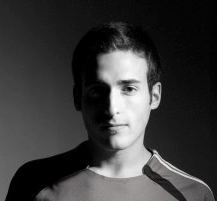 Growing up in the Catholic school system, I knew that when I graduated from teachers college that I would return back to the school board I once called home and offer the children there the same kind of guidance I was offered growing up.
Growing up in the Catholic school system, I knew that when I graduated from teachers college that I would return back to the school board I once called home and offer the children there the same kind of guidance I was offered growing up.While I believe I understand the morals and teachings behind faith – sometimes the hardest part is being an active member of the church community. You can imagine my worries when I found out that I needed a letter of recommendation from a priest before my application would even be considered at the board. I was going to need to book an appointment with a priest.
But, what kind of conversation do you have with a priest?
I began playing over the possible questions in my head. Do you attend church weekly? How often do you pray? What would you say your relationship with God is like? I was worried.
My Dad had given me a heads-up about the man I was about to talk with, “He’s kind of an introvert.” Great. An introverted priest – just my luck.
First impressions are an interesting thing (something I will ask you to keep in your mind for later) and Father John was an interesting character to say the least. He welcomed me into his office – or what looked like an office. There were papers all over the desk and open boxes with files everywhere. I started wondering how he kept track of anything in his office. But, as they say, looks can be deceiving.
I quickly began to realize that Father John wasn’t an introvert at all – he was actually an intellectual. The moment I told him I was a media studies graduate, he began asking me questions about Neil Postman and his book Amusing Ourselves to Death. Could Father John be for real? It was an interesting coincidence because I actually happened to have Postman’s book in my car and was reading it before our conversation.
Suddenly, the phone rang and our conversation was paused for a moment. I started to look around his office again when I began noticing things I hadn’t before. His book shelves were filled with books on a number of topics, the tops of the shelves were filled with lovely little cards from people in the community and amongst the papers were other tiny widgets and keepsakes that I can imagine only a priest would keep.
When Father John was off the phone, I began looking at him in a new light. We talked about his time in the Amazon, what it was like to visit Rome, how teaching is a calling and how I shouldn’t settle for anything but the best in life. I must have been in his office for over an hour when we finally decided to part ways.
 While my interview with the board went well in 2010, there wasn’t any room for new teachers and I was forced to reapply. Fortunately, this meant another conversation with Father John. I was excited to step back into his office and share my stories. His office looked exactly the same – it was a complete mess! But, the man behind the desk was happy as ever as we began talking about writing and his secret passion for book clubs.
While my interview with the board went well in 2010, there wasn’t any room for new teachers and I was forced to reapply. Fortunately, this meant another conversation with Father John. I was excited to step back into his office and share my stories. His office looked exactly the same – it was a complete mess! But, the man behind the desk was happy as ever as we began talking about writing and his secret passion for book clubs. I had the opportunity to ask him questions about people, life, how to go about being the best possible listener and what to do when people come to you for help.
Remember earlier when I alluded to first impressions? After I asked Father John about how to respond to people who come to you for help, he began talking about a good friend of his (who is also a priest), but who is also his exact opposite. Father John talked about his friend’s ability to look at someone without any judgment whatsoever – I wouldn’t have expected anything less from a priest. But, what I found interesting was that Father John admitted that, at times, he struggles to see past what is on the outside and really focus in on what he can do to help the people who come to visit him. The man is always striving to be better.
He told me that teaching, like being in the priesthood, is about creating a channel for communication with people and, well, God. It was interesting to hear Father John speak as he continued to explain his faults and how he is always working with people trying to understand why they have been put in his life and how he can help them.
I found this conversation, about a year and a half after our first meeting, rather interesting because I was that person. I was the guy who was thinking to himself, “What can I learn from this introverted priest?” But, with each passing day I am starting to truly believe that everything happens for a reason. The people we meet, the stories we hear and the roads we travel are all leading up to something greater than ourselves.
Would I have learned the same lesson if I had avoided meeting with Father John? I’m not really sure. But, the powers that be have an interesting way of teaching lessons.





